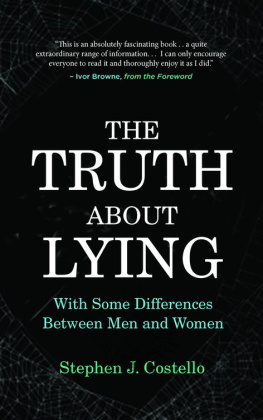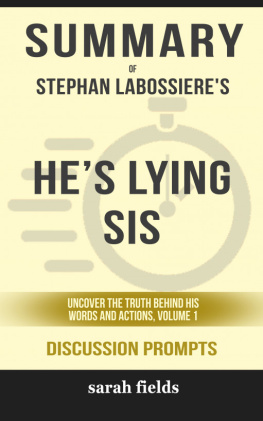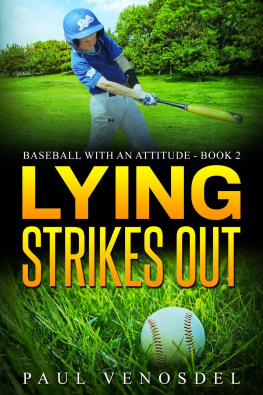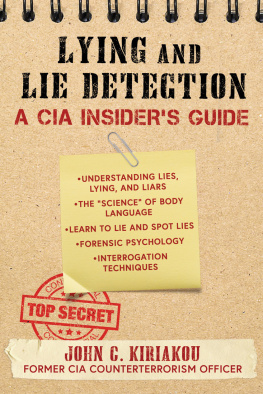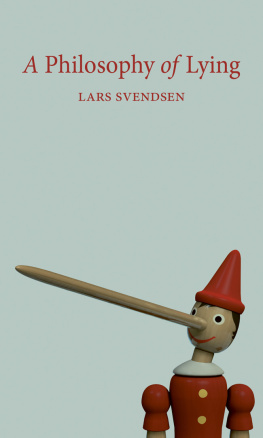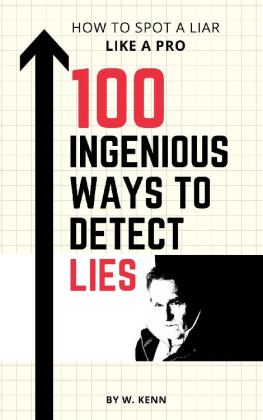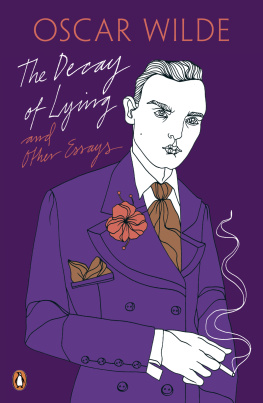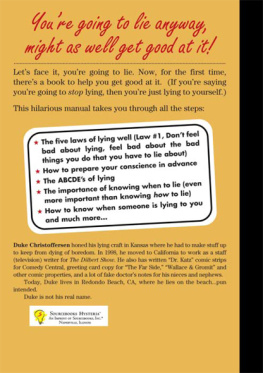I mention only those who have directly contributed to the writing of this book by way of reading earlier drafts, advising, suggesting titles or commenting constructively. To this end, I extend my heartfelt thanks to my very patient friends: Fionnuala MacAodha , Shay Ward, Oisn Breathnach, the Kearney brothers, Aedamar Kirrane, Cathal OKeeffe, Michael Fitzpatrick, Bob Haugh, Helen Sheehan, William Corrigan, and John Rice, in memoriam. This list includes my parents too, so special thanks to Val and Johnny Costello, who have always been there for me.
For providing such a gratifying paragraph of praise and for the equally ambrosial Foreword I extend my inestimable appreciation to Professors Richard Kearney and Ivor Browne, who have done me some service, merited or not. I am deeply honoured.
Finally, a profuse and profound debt of gratitude goes to my closest friend, Darren Cleary, to whom I dedicate this book. You inspire and ennoble me, enhance and enrich my life in more ways than you will ever know, for which I thank you from the bottom of my heart. You are a stalwart pillar of support and this book is all the better for your perusal.
T his is an absolutely fascinating book, and perhaps what is more important, a most enjoyable one to read. Stephen Costello is a serious philosopher and highly trained psychotherapist with enormous erudition. One would hardly need to refer to Google if you could call on his personal services. He has, at his fingertips, an extraordinary range of literary and philosophical sources and he can call on these apparently without effort.
At the same time he draws the reader into a personal dialogue in a simple and intimate way, and there is a subtle thread of humour running through the whole book that makes reading it all the more attractive and makes some of the more difficult passages , like the section on the philosophical views of Sartre that, in his opinion, truth is virtually impossible to discern more accessible to the ordinary reader like myself.
On first reading the title and opening the book, my feeling was, Of course I know the difference between truth and lies, but as one reads on, you realise how wrong you are, and that it is virtually impossible to discern intellectually when one is being really truthful, or engaging, as we all do, in distortions and lies of many kinds.
Then when I came to the section Do animals lie? I thought, At least here, its quite clear that animals are incapable of lying. But, once again, as you continue, you realise that nature is full of deceit , and that creatures of all kinds make themselves appear bigger, stronger and quite fierce looking in order to ward off predators, and so on.
Central to the whole book is the section towards the end on Some Differences between Men and Women; and this leads on to the description of How Men and Women Lie in Different Ways. Here Stephen brings to bear on his subject a quite extraordinary range of information, and I cant think, for the life of me, from where he derived all of these insights.
As I said at the beginning, this is a truly fascinating book, which I feel should be mandatory reading for all of us. I can only encourage everyone to read it and thoroughly enjoy it as I did.
Professor Ivor Browne
Consultant Psychiatrist
September 2013
A few years ago a friend phoned me to relate the following incident: Stephen, you wont believe what happened. Its right down your street. I was lying in bed last night beside a girl, just after, you know Anyway, the phone rang. It was my girlfriend! She asked me what I was doing. I said, Just lying in bed. Talk about a Freudian slip! Indeed. He was telling the truth while lying in bed
This book is on the philosophy and psychoanalysis of lying, and especially how men and women lie in different ways. Its about lies, love, language and logic. Its also about desire and deception, especially in our love relationships and in our loving-friendships.
How many lies do we tell? Can animals lie? Is deception detectable? Can psychotics lie? When do children start to lie? Why do we lie to ourselves? Do we need to lie? What about the people who enjoy lying? Above all, how do men and women lie differently? These are some of the questions I hope to answer.
Drawing on philosophical and Lacanian psychoanalytical insights, I am going to tell you the truth about lies.
A lie distracts, detracts from the truth. You lie if you dont want people to become aware of the truth. Total truth who would want it? is problematic. We are at home with lies. Lies can take place around the locus of the other persons desire or ones own ego. Some people like to be lied to; others need to be lied to. There is a difference between how men and women lie and to what end; this is centrally what the book is about, after certain other topics are also addressed.
When do we lie? Why do we lie? How do we lie? These questions will guide our applied enquiry and will be the subject matter of this brief book. In The Magic Lantern, Ingmar Bergman, the famous Swedish film-director , observed: Sometimes I have to console myself with the fact that he who has lived a lie loves the truth. Achilles, the truth-sayer, and Odysseus, the liar, abide in us all.
We lie best in front of potential partners or to close business deals. We show off with stories. Not quite a lie, then, just a slight embellishment and so it begins . You cant have a completely truthful conversation with friends, parents or lovers. Isnt there always something that is kept secret, that isnt shown, that cant be said or spoken? Isnt intimacy based not only on what we share with, but on what keep from, each other? We lie (or dont tell the truth) for different reasons , to different people in different ways, for different reasons.
If truth-telling is sometimes harmful, is it true that we harm ourselves when we lie? Michel de Montaigne, the French philosopher, thought so: I do myself a greater injury in lying than I do to him of whom I tell a lie. And Ralph Waldo Emerson, the American philosopher, writes similarly: Every violation of truth is not only a sort of suicide in the liar, but is a stab at the health of human society. A private lie can have public consequences. But Graham Greene, the British novelist, was more realistic: In human relationships, kindness and lies are worth a thousand truths. Lies of kindness, so.
If the truth is simple, it does not follow that it is easy to tell the truth. It may follow that it is difficult to lie well. Lying can be complicated. Samuel Butler, the English novelist, put it thus: Any fool can tell the truth, but it requires a man of some sense to know how to lie well. Lying can be learnt. It is a language-game like any other after all. It takes practice.
What follows are some observations on the act and art of lying a breviary of sorts. This type of terse writing has been present in the history of ideas from philosophers such as Heraclitus in the fifth-century BC to Theodor Adorno in the twentieth-century AD, which doesnt mean it works. Still, Im optimistic.

